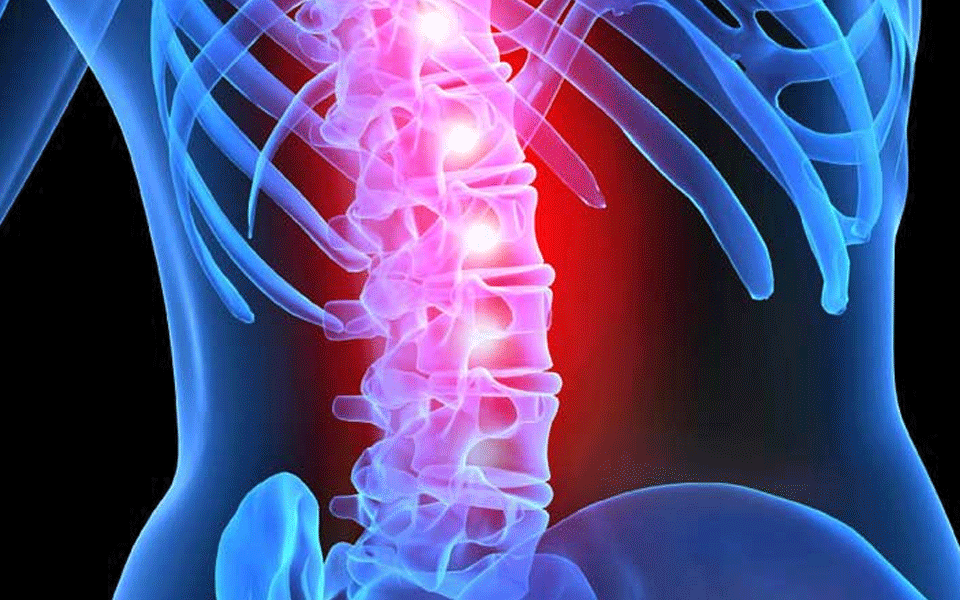The spinal cord is one of the most essential components of our central nervous system. It is a well-known fact that the spine acts as a communication system to transmit messages between the brain and other parts of the body. Any damage or injury to the spinal cord can end up in messing up with this circuit of message transmission.
In order to realize how our body can get affected by a spinal cord injury, it is important to know how the spine works. Several nerves originate from the brain and reach the skin, muscles and body organs through the spinal cord. There are specific levels on the spinal cord from where each nerve enters the cord and leaves it while entering to other body parts. The first seven levels known as the cervical levels are responsible for controlling breathing, neck and arm function. The next twelve levels or the thoracic levels control the chest and torso areas. The five lumbar levels manage the legs and the sacral levels are responsible for bowel, bladder, sexual and leg functions. It is, in fact, the spinal cord that controls our body movements. Thus, damage or injury to the spinal cord may damage the movements and functions of the above-mentioned areas in our body.
How can spinal cord injuries affect body functions?
A spinal cord injury is probably one of the most devastating injuries to a person, not only in terms of the physical disability it can produce but also in terms of its social and psychological implications on the injured person as well as his family. A person with a spinal cord injury can develop several ‘secondary’ complications and issues which need to be addressed from time to time.
Skeletal system: This is one of the body systems that get primarily hit due to a spine injury. Following an injury, some calcium and minerals leave the bones which may gradually get accumulated in the urinary system causing stones. This is why it is advised to remain as much active as possible post a spine injury. Difficulty in movement may result in joint stiffening of knees, elbows, shoulders and may cause pain. Range of Motion (ROM) exercise is of great help by enabling complete movement of joints by correct positioning in bed.
Urinary tract system: Many times, a person with spinal cord injury will not be able to empty his bowel and bladder. In such situations, either a person has to be on a full-time urinary catheter or has to do intermittent self-catheterization. In either of these situations, there is a substantially increased risk of urinary tract infections (Manifests as burning micturition, lower abdominal pain and fever with chills); that need to be treated with antibiotics. Preventing such infections by following hygienic and sterile catheterization techniques is always helpful.
Bowels: Similar to urinary issues, many patients with spinal cord injury also have a difficulty in emptying their bowels resulting in constipation. The abdominal muscles may have to be put on use to push the stool out depending on the extent and level of spine injury. A spinal cord injury can thereby result in bowel accidents, constipation and impaction. Following a spinal cord injury, it is essential to re-train the bowels. A new routine with various techniques, methods and medication, with the help of a gastro-enterologist and a physiotherapist, may help in regaining normal bowel movement and keep bowel accidents at bay.
Skin: The spinal cord sends messages to the skin to protect it from being hurt. Once the spine is injured or damaged, the transmission of these signals may pause and the skin may become numb to certain feelings of discomfort. Also, these patients usually have limited mobility and are confined to bed/ wheel-chair most of the time, increasing pressure on certain points on the skin. It can lead to pressure sores that open the skin to germs which may enter the body and enhance the risk of developing several infections. Daily skincare, regular skin check-ups and avoidance of pressure points by frequent change in positioning can help in these situations.
Respiratory system: Respiratory system may also get affected by a spinal cord injury. The very ability to move air in and out of the lungs depends on muscles which are controlled by the nerves in the spine. An injury to the spine may affect the ability to cough or even take deep breaths which are ways of ensuring complete and healthy functioning of the lungs. An incentive spirometer, a tool that enables deep breathing may come to the rescue and artificially help to take deep breaths. Regular chest physiotherapy and breathing exercises along with early recognition and prompt treatment of respiratory problems can prevent major complications like pneumonia or respiratory failure.
Autonomic function: Spinal cord injury may affect autonomic functions as well. The autonomic nervous system that runs in and out of the spinal cord manages the glands, digestion, heart, temperature, blood pressure and more. A spinal cord injury may result in most of these functions getting affected like temperature and blood pressure regulation and may put one at the risk of autonomic dysreflexia which can be severe.
Apart from these, spinal cord injury may also affect one’s sexual life by causing erectile dysfunction and changes in ejaculation and fertility among men and loss of sensation and feelings among women. A spine injury can put the entire body function at stake and lead to abnormal functioning of several body organs and systems. Hence, it is important to be cautious about the health of the spine and protect it from any sort of injury. Daily exercise, giving adequate rest to the spine, wearing appropriate shoes that support the spine, practicing good ergonomics while sitting and keeping the body active can help a great deal in maintaining a healthy spine.

Authored by Dr. Umesh Srikantha, Consultant – Neurosurgery, Head of Spine Services, Aster CMI Hospital
Let the Truth be known. If you read VB and like VB, please be a VB Supporter and Help us deliver the Truth to one and all.
Ahmedabad, Apr 25: The Gujarat Congress on Friday suspended from the party for six years its Surat Lok Sabha candidate Nilesh Kumbhani, whose nomination form was rejected over discrepancies leading to the BJP's Mukesh Dalal getting elected unopposed.
A statement from the Congress said the party's disciplinary committee decided to suspend Kumbhani after thorough discussion, adding it had come to the conclusion that the nomination form was rejected due to gross negligence on his part or "in connivance with the BJP".
"To be fair to you we have given time to you to explain your case but instead of coming before the party disciplinary committee you have gone incommunicado. After your form was rejected by the authorities, BJP went ahead and got form of other eight candidates withdrawn. This has deprived people of Surat their voting rights," the Congress disciplinary committee headed by Balu Patel said.
"People of Surat and party workers have become very angry due to your action and are expressing their anger in different ways. The Congress party has decided to suspend you for six years from the party," the press note said.
Kumbhani's nomination form was rejected on April 21 after his three proposers submitted affidavits to the district returning officer claiming the signatures on the document was not theirs.
The nomination form of Suresh Padsala, the Congress' substitute candidate from Surat, was also invalidated on the same grounds.
In his order, Returning Officer Sourabh Pardhi said the three nomination forms submitted by Kumbhani and Padsala were rejected after prima facie discrepancy was found in the signatures of the proposers and they did not appear to be genuine.
Kumbhani, a former corporator from Surat, had unsuccessfully fought the 2022 Assembly polls from Kamrej there.
The Bharatiya Janata Party's Mukesh Dalal was elected unopposed from Surat Lok Sabha constituency on April 22 after all other nominees, including one from BSP, withdrew from the fray one by one on the last day of withdrawing papers.





